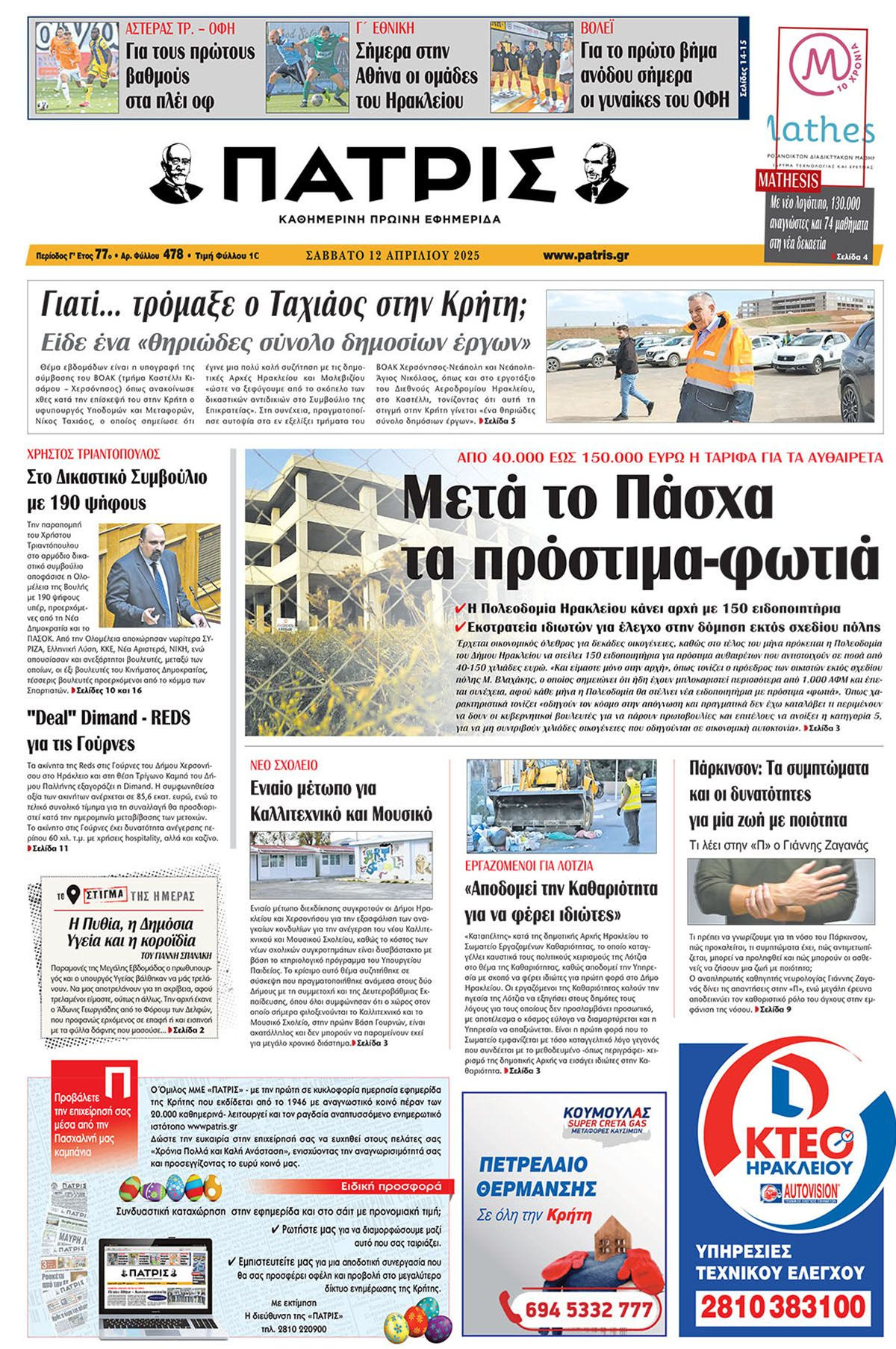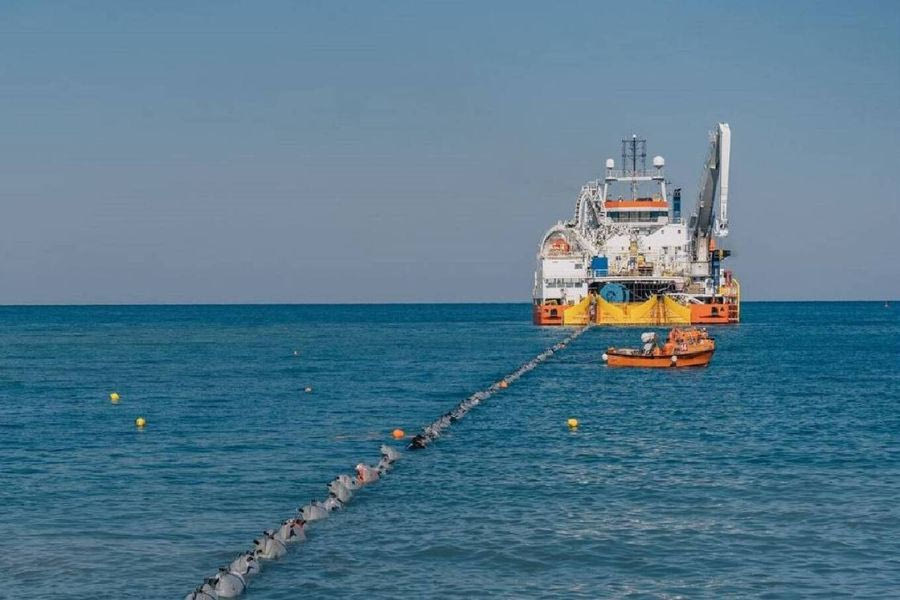The Independent Power Transmission Operator (ADMIE) has temporarily frozen payments to French cable company Nexans due to the prolonged uncertainty regarding the course of the Crete-Cyprus electricity interconnection.
The elephant in the room is none other than the geopolitical factor, which has not yet allowed the research vessel chartered by Nexans to enter international waters, resulting in the necessary sounding surveys for the laying of the submarine cable not proceeding.
The surveys in international waters, between Kassos and Karpathos, were interrupted last July after a 40-hour incident and the presence of five Turkish warships and have not restarted since, with Athens recently appearing restrained in terms of taking on the relevant risk. This because it cannot take it for granted it will have the support of the US due to the unpredictable international moves of President Donald Trump, nor of France, which was considered a given due to Nexans’ involvement in the project and the interest in the entry of a second French company, Meridiam, as international developments have changed the priorities of French President Emmanuel Macron.
The cloudy landscape has reinforced the concerns of Nexans, which has undertaken the construction and laying of the submarine cable for 1.4 billion euros but also of ADMIE, which has paid the French company around €200 million to date, within the framework of the contract between them.
On February 28, ADMIE, according to government sources, should have paid Nexans outstanding installments of €70 million, but in order to limit its exposure until there is a positive development, it proceeded with a temporary freeze on payments. The decision, according to the same sources, was taken in consultation with Nexans so that the freeze on payments would not cause the manufacturer to suspend production of the cable.
“The course of the project depends on resolving issues that are open and do not depend on ADMIE and Nexans. It is a logical move on the part of ADMIE, which wants to be covered in order to move forward, to limit its exposure,” competent government officials tell Kathimerini.
Athens’ decisions regarding seabed surveying in international waters will also determine whether and for how long this verbal commercial agreement will remain in force or will evolve into a definitive rupture, with unforeseen consequences for ADMIE, in the event that the French company claims clauses. In such a development, AMIE, in addition to Nexans’ claims, will be called upon to return to the European Union an amount of approximately €160 million that it disbursed from the €657 million subsidy it has approved for the Crete-Cyprus electrical interconnection, as a project of common interest (PCI).
The final bill, of a definitive failure that may occur for reasons beyond the responsibility of the implementing body, will be transferred to consumers and taxpayers. A legislative regulation passed last September within the framework of the Greece-Cyprus interstate agreement provides that in the event that the project “is delayed or cancelled due to external factors beyond the control, responsibility and fault of the implementing body and the suppliers and contractors contracting with it”, the implementing body, i.e. ADMIE, recovers 13% of the total investment and operating costs incurred so that the total amount recovered from Greece amounts to 50%, compared to 37% in the Greece-Cyprus cross-border agreement.
That additional percentage (13%) will be covered by the state budget and will not burden Greek electricity consumers, from whom, by decision of the regulator (RAAEY), 37% of the costs will be recovered.
The same arrangement provided coverage to ADMIE for the repayment of an outstanding installment to Nexans of €26.8 million.
However, the prevailing feeling in the government is that “Nexans will not go to the extreme”, as reported by government officials who were recently visited in Athens by representatives of the French company to express their dissatisfaction regarding the delays in seabed surveys.


